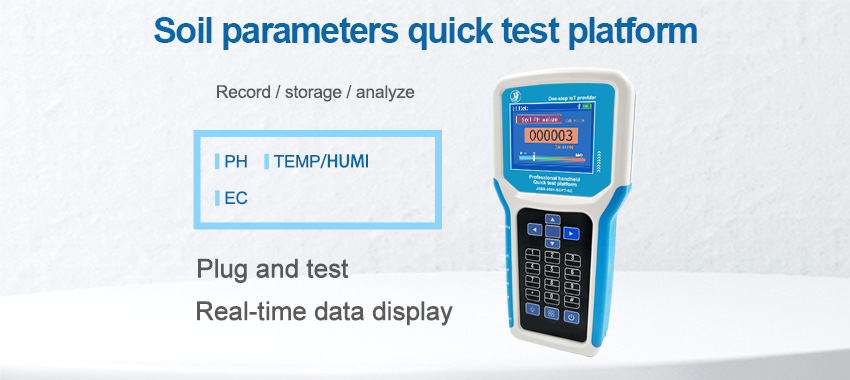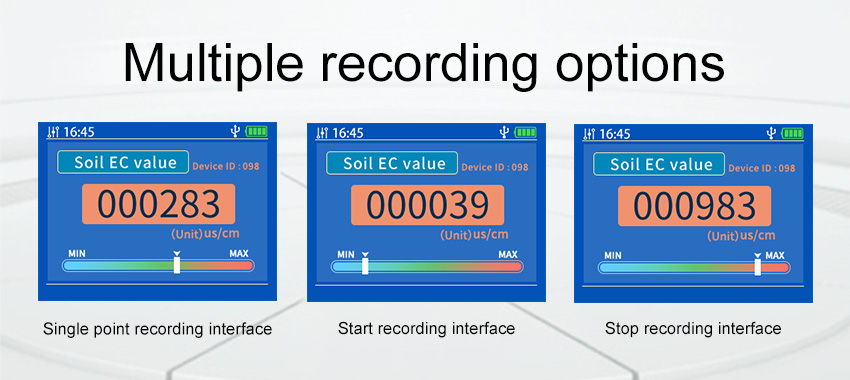Sustainable farming practices are vital for ensuring food security, reducing environmental impact, and promoting long-term agricultural productivity. In recent years, advancements in technology have provided farmers with powerful tools to optimize their farming practices. One such tool is soil sensors, which offer valuable insights into soil conditions and help farmers make informed decisions regarding irrigation, fertilization, and resource management. In this article, we will explore the potential of soil sensors in sustainable farming and how they can contribute to a more efficient and environmentally friendly agricultural system.

Understanding Soil Health:
Healthy soil is the foundation of a successful farm. Soil sensors provide real-time data on crucial soil parameters such as moisture content, temperature, nutrient levels, and pH. By continuously monitoring these variables, farmers can gain a deeper understanding of soil health and make informed decisions about crop selection, irrigation scheduling, and nutrient management.
For example, soil moisture sensors allow farmers to determine the optimal timing and amount of irrigation required. This prevents under or over-watering, conserves water resources, and ensures that crops receive the right amount of moisture for optimal growth. Similarly, nutrient sensors provide insights into the availability of essential elements in the soil, enabling farmers to adjust fertilizer applications based on actual crop needs. This targeted approach reduces the risk of nutrient imbalance, improves nutrient uptake efficiency, and minimizes environmental pollution caused by excess fertilizer application.
Precision Agriculture and Site-Specific Management:
Precision agriculture is a farming approach that utilizes advanced technologies, including soil sensors, to optimize farming practices at a micro-scale level. Soil sensors play a crucial role in implementing site-specific management strategies that account for soil heterogeneity across a farm.
By incorporating soil sensors into precision agriculture systems, farmers can create detailed soil maps that highlight variations in soil characteristics across different areas of their fields. Armed with this knowledge, farmers can implement site-specific actions such as variable rate fertilization, which ensures that crops receive the right amount of nutrients in each area. This approach leads to improved yield, reduced input waste, and minimized environmental impact.
Moreover, soil sensors can help identify areas with poor soil quality or specific nutrient deficiencies. Early detection of these issues allows farmers to take remedial actions such as soil amendment, crop rotation, or targeted fertilization to rectify the problem before it affects crop performance. By addressing soil health issues proactively, farmers can minimize yield loss, reduce the need for chemical inputs, and enhance overall productivity.
Water Management and Conservation:
Efficient water management is a critical aspect of sustainable farming. Soil sensors play a vital role in optimizing irrigation scheduling and conserving water resources.
By continuously monitoring soil moisture levels, soil sensors provide farmers with real-time data on soil water availability. This information helps farmers determine when and how much water to apply, allowing them to adjust their irrigation practices based on actual crop water needs rather than relying on fixed schedules. Precision irrigation based on soil sensor data reduces water waste, ensures that crops receive sufficient moisture, and minimizes the risk of water stress.
In addition, soil sensors can help identify areas with excessive water retention or inadequate drainage. By pinpointing these problem areas, farmers can implement measures such as drainage systems or adjusted irrigation practices to improve soil drainage, prevent waterlogging, and mitigate soil erosion. Effective water management not only enhances crop productivity but also contributes to sustainable water use and conservation.

Early Detection and Prevention of Soil Degradation:
Soil degradation is a pressing global issue that threatens agricultural productivity and environmental sustainability. Soil sensors can play a crucial role in the early detection and prevention of soil degradation processes.
For example, soil sensors can monitor soil compaction, which occurs when the soil becomes too tightly packed, limiting root growth and nutrient uptake. By detecting compaction early on, farmers can implement appropriate measures such as reduced tillage or cover cropping to alleviate the problem and maintain soil health.
Similarly, soil sensors can detect soil salinity, a condition that arises when excessive salts accumulate in the soil. High soil salinity can be detrimental to crop growth and productivity. By continuously monitoring soil salinity levels, farmers can take corrective actions such as leaching the soil with freshwater or adjusting i






